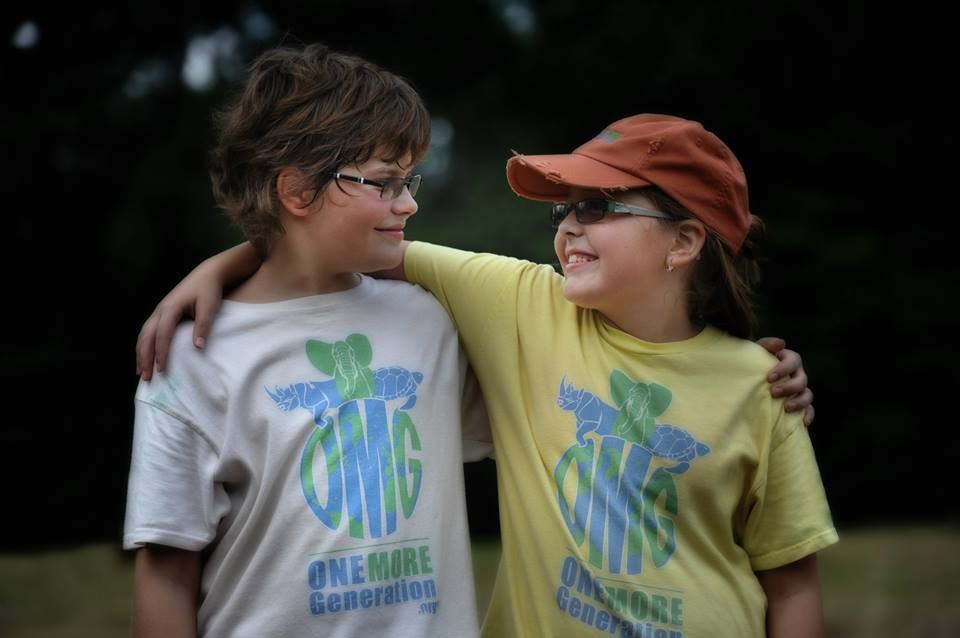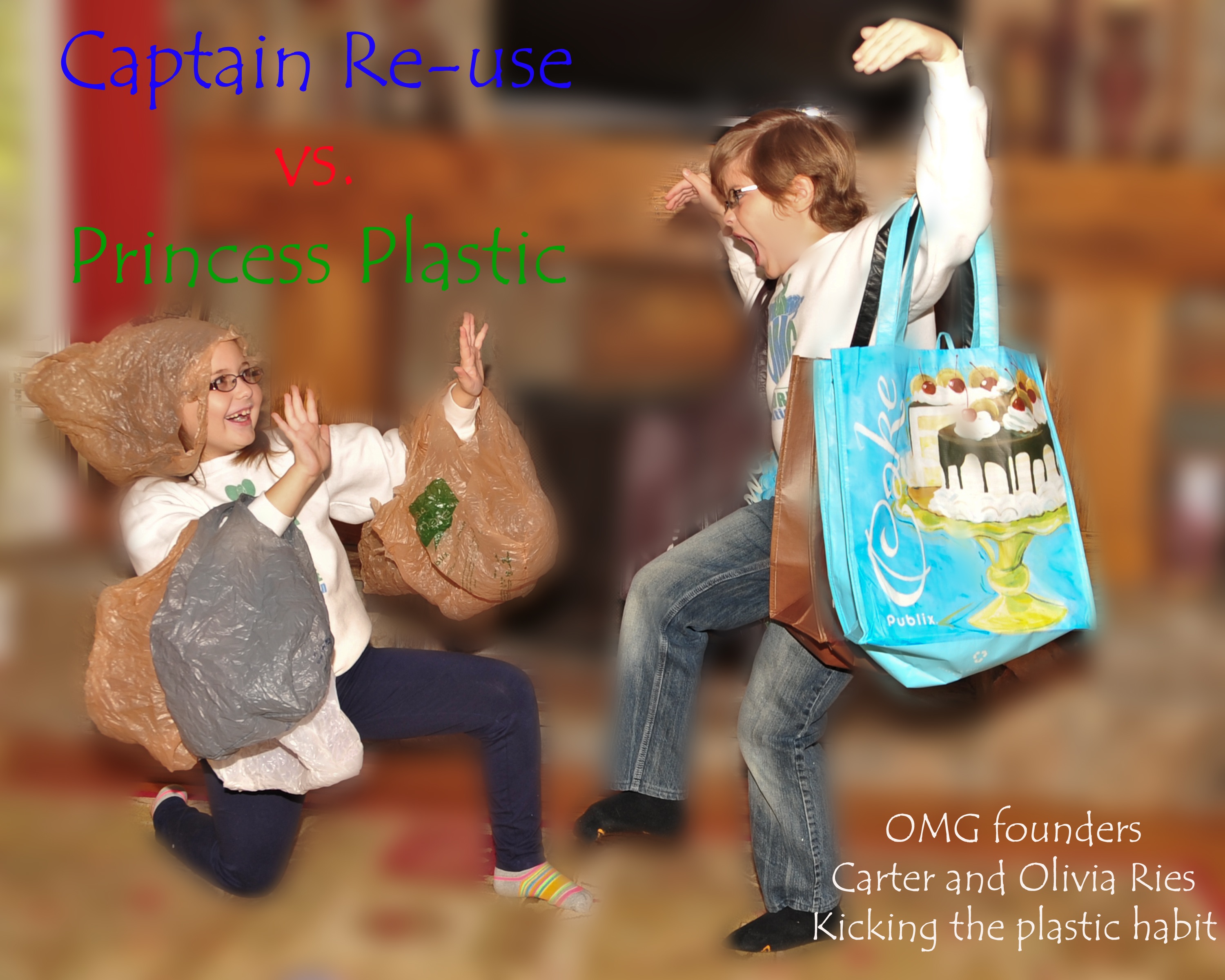"One More Generation" Working to Stem Plastic Pollution
by Anna Awimbo | June 10, 2015

What should you do when you’re a young child worried about the many animal species around you being pushed to extinction?
Do you complain about it to your parents? Try to find a way to help prevent the threat to animals? Start your own organization?
Carter (13) and Olivia (12) from Fayetteville, Georgia, did all three. In 2009, with the help of their father, Jim Ries, they founded One More Generation (OMG), an organization devoted to saving endangered species and cleaning up the environment.
Carter and Olivia first became involved in animal rescue efforts when the BP Gulf oil spill occurred. They spent four months collecting badly needed supplies, and then traveled 11.5 hours down to the Gulf to deliver their supplies and work with the Marine Mammal and Sea Turtle Rescue Center.
By the end of their trip, they had realized that the environmental problem of plastic pollution is an even bigger threat to animals than all the oil being spilled worldwide. According to the Plastic Pollution Coalition, fatal entanglement in and ingestion of marine debris by marine animals has increased by 40 percent in the last decade.
Raising Awareness
Inspired by this new knowledge, Carter and Olivia dove into their next cause by finding out as much as they could about plastic pollution. They also figured out how to share this information with other children just like them.
With the help of two teachers and a retired principal, OMG designed and launched its week-long Plastic and Recycling Awareness Curriculum, which was written to match the latest national and local state standards for science. To be all-inclusive and reach the biggest audience, the team has infused math, literacy, and art into the program.
Over the years, as Carter and Olivia have continued their research on plastic pollution, the siblings have become increasingly aware that many manufacturers and marketing firms bombard the public with products that are made and packaged with plastics that are designed to be used once and then thrown away.
In addition, the types of plastics being used to package many foods and other commonly purchased products are non-recyclable. The majority of this plastic ends up in landfills for hundreds of years.
Some of the plastic ends up in our waterways and is eaten by animals, with devastating results. According to the National Oceanic and Atmospheric Association (NOAA), in the United States at least 115 marine species are affected by entanglement, including mammals, turtles, birds, fish, and crabs.

Taking Responsibility
Carter and Olivia also have become increasingly frustrated by what they see as manufacturers’ disregard for what is happening to our environment, and the long-term effects it will have on future generations. The more they delve into the issue, the more convinced they become that companies are no longer concerned about long-term consequences, but instead are focused on making a quick profit at the expense of generations to come.
With these frustrations, Carter and Olivia have funneled their energy and emotions into promoting OMG's number-one message: "Anybody can make a difference." The pair certainly walk the talk and are currently traveling around the country and world spreading the word.
A goal of theirs is to help communities realize that it is everyone's individual responsibility to stand up to companies and to vote with their wallets in an effort to stop environmental pollution from continuing. They consider plastic pollution to be one of the largest environmental threats facing humans and animals globally and would like to tell everyone that it is time we all started educating ourselves on how we too can effect change.
The work that Carter and Olivia are doing is truly inspiring. To find out more or learn some helpful tips on how to cut down on plastic trash, visit www.onemoregeneration.org.
Anna Awimbo is the former director of the Collaborative Communities Program at New Dream.

